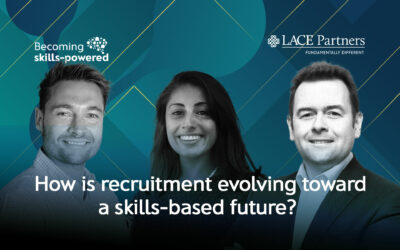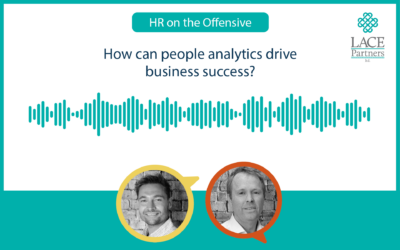In this week’s blog we hear from Chris Kirby about the meeting of two big trends currently; protirees returning to work and the rising profile of the employee value proposition (EVP). If an EVP is the articulation of ‘the deal’ made to attract and retain employees, this blog analyses the ways that the deal may (or may not) need to be adjusted for returners to work post-retirement.
The recent drive to reintroduce retired over 50’s into the workforce creates a fascinating dynamic when we think about EVP.
25 years ago, when the over 50’s would’ve been either gathering momentum or in full flow in their careers, the perception of work was very different. Largely a job was for life. You often had a bar or sports facilities on site, socialised mainly with your colleagues, and the company gave you a final salary pension equivalent to pretty much your entire annual salary at retirement as a thank you for devoting your career to them.
This created two angles that I think have since been lost. Firstly, we have lost the perception that accepting a job is a long-term decision. Secondly, we have lost the idea that to be comfortable in retirement you could earn a modest salary for 35 years then keep receiving it as a pension during retirement. It wasn’t that long ago that you didn’t need to be too ambitious to be comfortable in retirement.
Pensions are now far smaller. To earn a pension equivalent to a modest salary in retirement you’d likely need to reach a Director-level role and be at that level for a couple of decades topping up a pension as you went.
What has changed?
Culturally the world has changed, people don’t socialise as much, at least not in person, because technology has enabled a different way of life. Everything is available now and people are far more mobile. So many opportunities have surfaced through the world being so connected; for example when it comes to employment you don’t need to be actively looking to see that a job that is going, and many types of work can be carried out anywhere- meaning you aren’t restricted by location.
This has had an impact on the overall perception of work. Accepting a job is now an easily changeable, short-term decision, people make their choices based on a 3-5 year plan not on retiring at that company. Progression is now seen as a necessity in order to be comfortable in retirement and as a result is expected far quicker with the alternative being progression elsewhere. Lastly the focus on EVP and company culture is far more important. People are more likely to leave an organisation if they aren’t happy and no longer feel like their values are matched by their employer, or they aren’t getting a work-life balance they know is available elsewhere because there is no broader incentive to stay.
What is employee value proposition on a practical level?
EVP is personal to the employee. What is valuable to one, won’t be to another, and this is something employers will need to navigate when looking to take on over 50’s looking to get back into the workforce. For example, for working parents or carers flexible hours spread over five days may be more appealing than a four-day week. There is a risk that the gulf between the expectations of the over 50’s and those of Gen Z is greater than any faced by organisations to date as a result of the technological and societal changes in the period between them.
I had thought that when hiring over 50’s it would be important to remember the loyalty they would have become accustomed to has been broken. It may be a strange sensation to be joining a company for only a few years, and to be working alongside a generation of people who might have a vastly different value system to them.
Let’s look at what the protirees told us about their EVP expectations
Last year the Office for National Statistics surveyed adults aged between 50 and 65 who had left or lost their job since the pandemic and haven’t returned to work, and it makes for interesting reading for prospective employers.
- 82% of respondents feel they already have the right skills to get a new job
- When asked to pick from a list of new skills they could develop, none of the ten options achieved an overall response rate of 20%
- 59% said they would not like to improve on any of the options
Based on the statistics then, hiring from this generation is not going to result in strong appetite for progression or development. What it could also show is there are a lot of people with already developed and significant amounts of experience, skills, and knowledge waiting to be called upon, or are they?
Thankfully the survey also tells us that in the majority of cases the answer to this is yes. When asked whether they would consider returning to work 58% of all respondents said they would. Breaking it down further a huge 86% of respondents aged between 50 and 54 said they would, compared to 44% aged between 60 and 65. So, we have a large skills base willing to work, and as such the recent drive certainly makes sense through that lens.
What is the difference in working requirements between generations?
Back to EVP then and the question has to be; what does this population value when it comes to EVP? How different is it to the demands of Boomers, Millennials and Gen Z? The survey has us covered here too.
The 58% willing to return to work were provided with 6 factors and asked to select the most important. Clearly the most popular response was flexible working hours at 32%. In second was good pay at 23%. The most interesting response was only 3% putting value on support for their mental wellbeing, and only 7% specifying permanent employment as important factors.
Maybe the expectations when it comes to EVP aren’t so different after all then? The reasons for being at this point may be different but it seems the appeal of an EVP is fairly consistent whether you are over 50 and looking to get back to work, through to being a part of Gen Z.
If you are working on how you can better attract and retain top talent or want help defining and optimising your Employee Value Proposition, we are here to help. Simply fill in the form below and we’ll get in touch.






